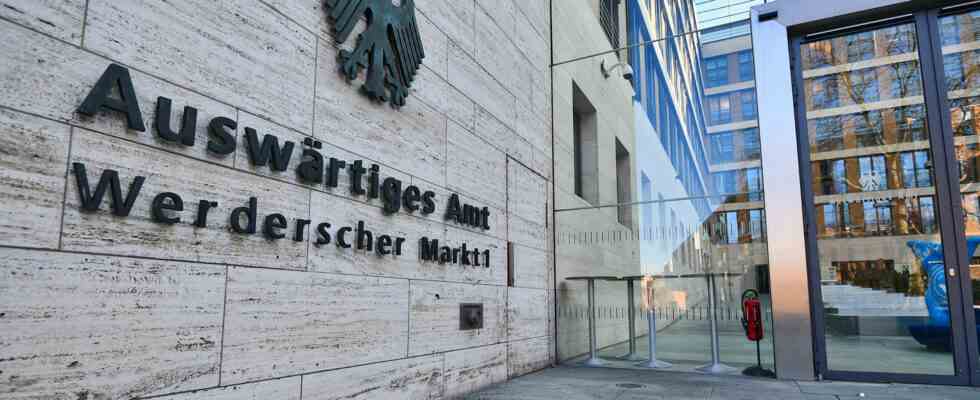Status: 04/11/2023 4:43 p.m
In response to the expulsion of the German ambassador to Chad, Kricke, Berlin has called on the top Chadian diplomat to leave the country. The Foreign Office thanked Kricke for his “exemplary” work.
Chad’s ambassador, Mariam Ali Moussa, has to leave Germany within two days. This was announced by the Foreign Office. According to a ministry spokesman, the move is a reaction to the “unjustified expulsion” of the German ambassador to Chad, Jan-Christian Gordon Kricke. “We very much regret that it had to come to this,” said the spokesman.
Chad expelled Ambassador Kricke at the weekend. A reason was not given. However, the Ministry of Communications wrote on Twitter that the decision was justified “by the rude attitude and non-compliance with diplomatic customs”. A Chadian government source told AFP that Kricke was specifically accused of “interfering too much” in the country’s governance. The ambassador received several “calls to order”.
The diplomat Kricke has meanwhile returned to Germany.
Image: dpa
Ministry rejects criticism
The Foreign Office, on the other hand, emphasized that Kricke “executed his office in N’Djamena in an exemplary manner and campaigned for human rights and the rapid transition to a civilian government in Chad”. The German embassy in the country will continue this commitment together with local partners.
Kricke returned to Berlin on Sunday. He has been ambassador to Chad since 2021.
Elections postponed, protests put down
The country in the Sahel region, which is riddled with poverty and corruption and borders Libya to the north and Niger to the west, has been ruled by President Mahamat Idriss Déby Itno since April 2021 after his father, long-term ruler Idriss Déby, was overthrown by rebels in the north of the country had been killed.
Deby Itno had promised to hold democratic elections within a year and a half. However, in October 2022, Déby’s rule was extended for another two years. There were demonstrations by the opposition, which were brutally suppressed. Many diplomats in the country had sharply criticized the violence. At the time, the federal government and several other EU countries expressed their concern about the delayed return to democracy.

